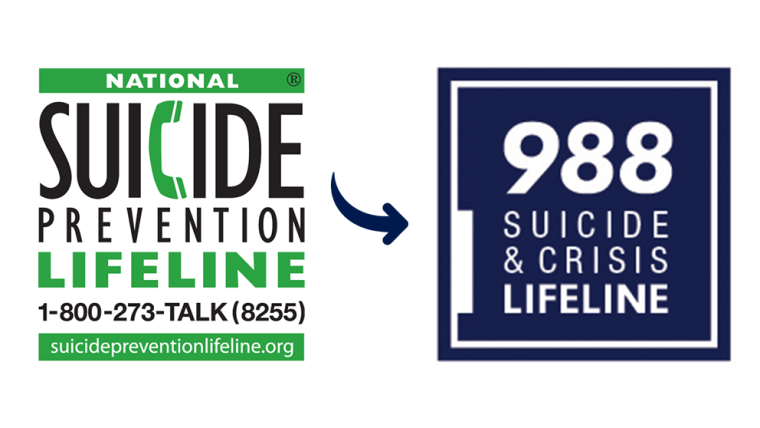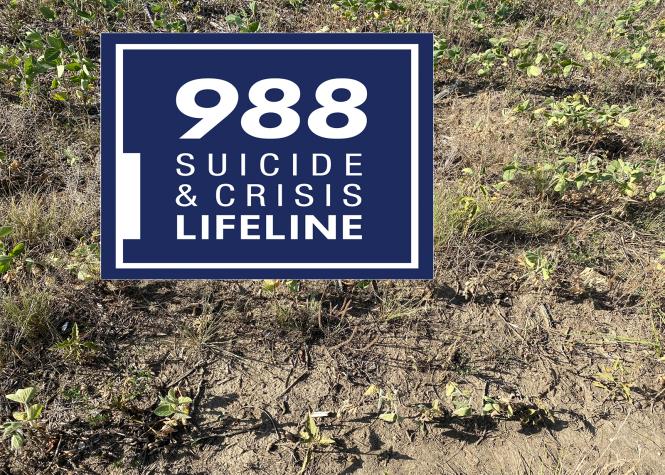Writer
Linda GeistCOLUMBIA, Mo. – During drought, plants and livestock suffer.
So do farmers. Life in rural America can be rough, especially when weather-related events such as drought and flood put crops and livestock at risk.
University of Missouri Extension agronomist Valerie Tate knows this all too well. Tate has lost some friends and neighbors to suicide, a topic that still breaks her heart.
She’s not alone. September – National Suicide Prevention Month – is a painful reminder that life is tough in rural America. Tate says it is a good time to #BeThe1ToAsk, keep them safe, be there, help them connect and follow up.
MU Extension safety and health specialist Karen Funkenbusch reminds farmers and their families that MU Extension offers behavioral and mental health resources, mental health workshops, suicide prevention classes and teletherapy counseling sessions for farmers and ranchers.
Suicide is the 10th-leading cause of death among Americans. The Centers for Disease Control and Prevention reports that rural residents are at a higher risk of suicide than urban residents. The CDC also reports that more than half of U.S. counties don’t have a social worker, psychologist or psychiatrist. According to the Missouri Department of Health and Senior Services, 98% of the state’s rural counties are designated “mental health professional shortage areas.”
It’s time to change those statistics, says Funkenbusch.
In addition to a shortage of mental and behavioral health services, workers in rural communities often face other barriers such as difficulty obtaining health insurance, she says. There also may be sociocultural factors such as stigma against seeking help, especially for men. A lack of nearby medical services often hampers emergency care for those suffering from serious self-inflicted injuries or overdoses.
MU Extension works with numerous groups to provide resources to farmers and ranchers, especially those who live in underserved areas.
One is the AgriStress Helpline. MU Extension, in a partnership with the Missouri Department of Agriculture, is promoting the free, confidential service, which is available to Missouri producers and rural families seeking mental health support. Call or text 833-897-2474 for help. Health care professionals answer 24 hours a day, seven days a week.
The MU Psychological Services Clinic offers free teletherapy sessions for farmers and ranchers and members of their immediate families. Learn more at muext.us/PSCFarmRanch, or contact the clinic at adpsc@missouri.edu or 573-882-4677.
MU Extension is part of Iowa Concern, which provides stress counselors, an attorney for legal education, information and referral services for farm families. The toll-free number is 800-447-1985.
These services are supported through Farm and Ranch Stress Assistance Network grants from the USDA National Institute of Food and Agriculture.
Another option is the 24-hour National Suicide & Crisis Lifeline, which provides free, confidential services. If you or someone you know is in crisis, call or text 988 or go to 988lifeline.org.
Find other resources in the Mental Health Awareness Toolkit at muext.us/MHtoolkit.
Photo
https://extension.missouri.edu/media/wysiwyg/Extensiondata/NewsAdmin/Photos/2023/20230901-spm-1.jpg
Drought affects more than plants and livestock. September – National Suicide Prevention Month – is a painful reminder that life is tough in rural America, especially after major events such as drought and flood. Soybean photo by Valerie Tate, University of Missouri Extension.
Infographic
https://www.nami.org/NAMI/media/NAMI-Media/Infographics/NAMI-Suicide-FINAL.pdf
It’s Okay to Talk About Suicide (National Alliance on Mental Illness)

